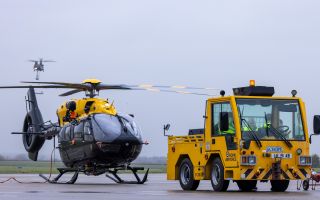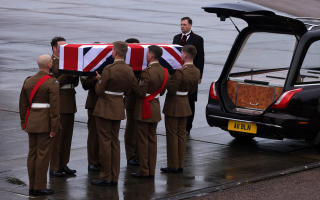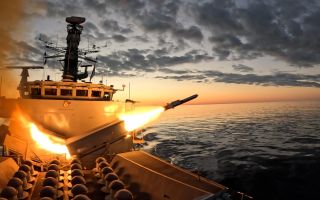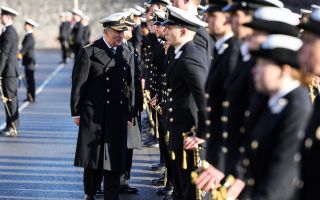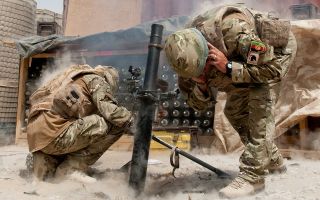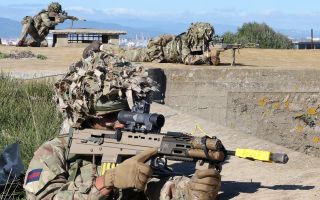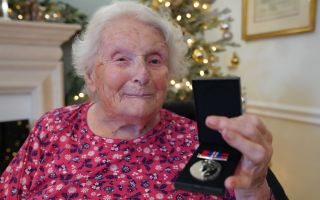
First Sea Lord's vision for the Navy is admirable – but he must also consider practicalities

This week is a big week in the defence and security world: it’s DSEI week.
For those of us who have worked in this sector for a while, in uniform or not, it’'s a great opportunity to catch up with old friends and colleagues with whom we might have lost touch.
Criticised by some as being a boondoggle for the defence-industrial complex, with its drinks receptions, lavish lunches and swanky dinners (of which plenty go on), its real value is a meeting point for the sharing of ideas and information.
With this in mind, the finale to Tuesday’s schedule was the keynote speech by the new First Sea Lord, General Sir Gwyn Jenkins. As Forces News has reported, Gen Sir Gwyn is the first Royal Marine to hold this illustrious post and this was his first major public speech in which he set out his agenda and ambition for his tenure.
His address was delivered with the the clarity and certainty of a man who is both a Special Forces marine and has operated at the highest levels of government. He has served as both Deputy National Security Advisor and Vice Chief of the Defence Staff.
The General’s tone was measured, but it was clear that he will brook no dissent – he's a man on a mission, and he's in a hurry.
And Gen Sir Gwyn was explicit about that mission: to move the Royal Navy to warfighting readiness in the next four years.
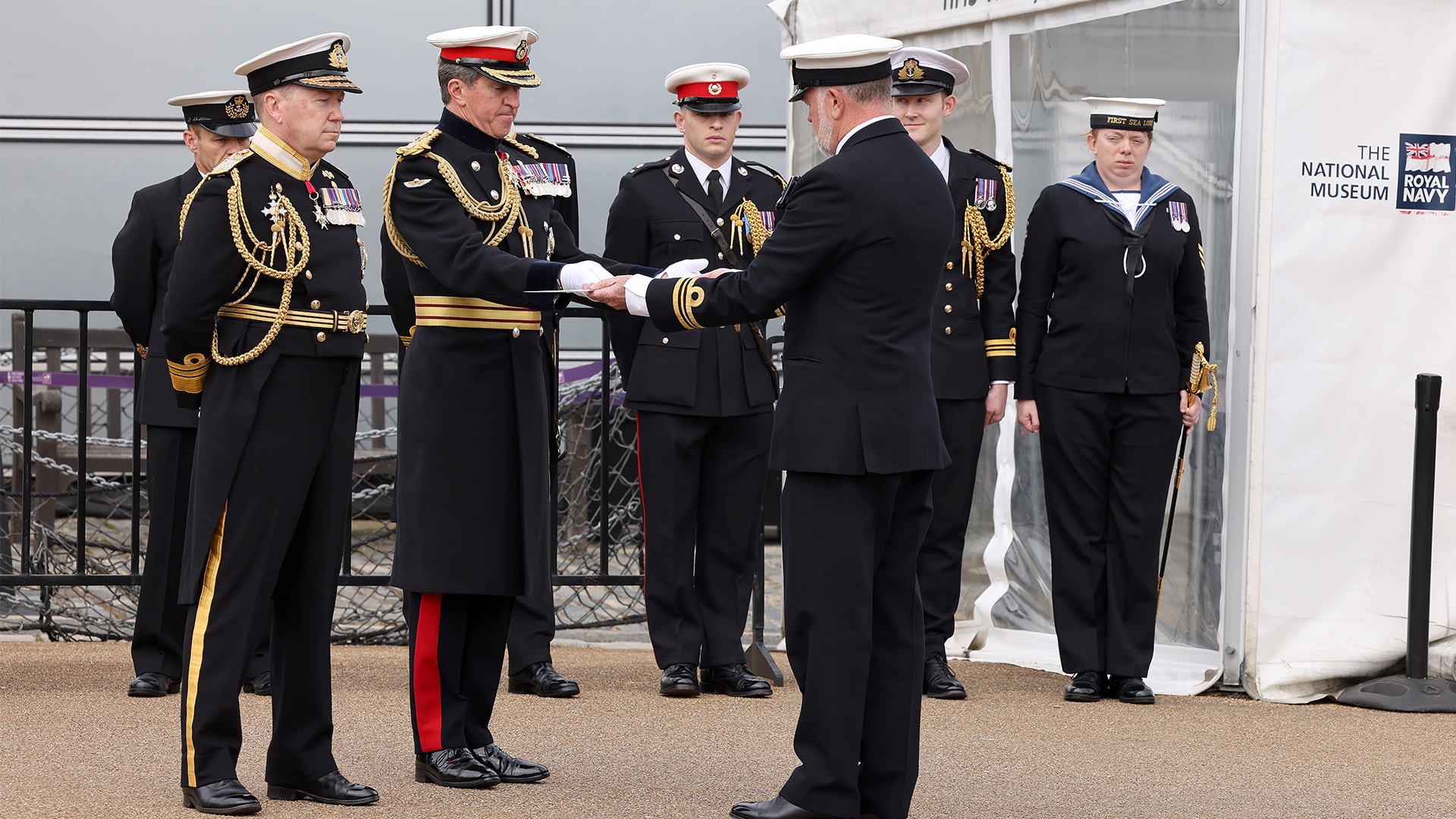
Ageing out
He acknowledged the challenges of the ageing fleet, especially the frigates, and the difficulties of recruitment and retention, but set out his four priorities for the Royal Navy and the industry that supports it.
First was the nuclear enterprise: the strategic nuclear deterrent is the ultimate guarantee of our security and is a "no fail" mission for the Royal Navy. Whilst the Vanguard-class submarines that carry the Trident nuclear missiles are the heart of this, there is a much wider suite of capabilities that are needed to keep them protected and their deterrent effect assured.
This enterprise is under significant strain. The extended patrol lengths of the Vanguard boats has been widely reported, as has the availability of the hunter-killer submarines and anti-submarine warfare frigates that protect them.
There's plenty of work to do here, but don't be surprised if you don't hear too much about it – and for good reason.
The primary challenge, beyond the ageing current fleet, is simultaneously managing the entry into service of the Dreadnought-class of submarines, that will replace the Vanguards, and the Type 26 frigates that will replace the venerable Type 23s.
It would be a mistake to underestimate the difficulties that such structural changes, however long overdue, will present.
Balancing ideas with practicalities
His second focus was on innovation. Highlighting the Navy's heritage of being a buccaneering, innovative and pioneering institution, he wants to reinvigorate that spirit to do better and adapt faster to the changing world. New technologies are at the heart of this vision, especially uncrewed and autonomous systems.
Gen Sir Gwyn sees the adoption of such technologies as an opportunity to grow and diversify the fleet. The mantra is "uncrewed where possible, crewed only when necessary". This applies to maritime aviation as much as vessels on and under that water and he has claimed that next year we will see jet-powered drones operating from our aircraft carrier is collaboration with crewed aircraft. This will be exciting to see.
He also described his vision of a Type 26 frigate on patrol in the North Atlantic escorted by two uncrewed ships hosting sensors and weapons to protect the crewed platform. And here I must sound a note of caution. The assumption that underpinned this was that these would need not be complex vessels as they would not be crewed. This claim is worth examining.
To escort a Type 26, or indeed a carrier task group, it is axiomatic that such uncrewed vessels will have to go where the main unit that they are protecting goes. They will need equivalent seakeeping abilities, speed and endurance as the crewed vessels.
It is the last of these that poses the biggest challenges as sustainment at sea is provided by Replenishment at Sea (RAS) from tankers.
For the uncrewed vessels to play such a role in the fleet, a solution to their ability to RAS must be found. They must also be built with sufficient survivability that they are safe to conduct such manoeuvres at an acceptable level of risk.
Reliability will also be a challenge. Much of the work of a ship’s company is the maintenance and repair of the vessel and its systems to keep them in working order. A crew without such engineers and technicians will need increased levels of reliability and redundancy to give it the same ability to achieve its missions.
None of these challenges are insurmountable of course, but such factors suggest that the First Sea Lord’s vision that these vessels will be less complex and thus more affordable may not be quite right.
Best-fit leadership
His third priority was leadership. This was music to my ears.
As someone who has long advocated that great leadership looks like someone who can get the very best from all of their people and maximise the team's performance through the realisation of every individual’s potential, this was very welcome. Gen Sir Gwyn wants to find leaders that can deliver successful outcomes by inspiring and motivating their people. I could not agree more strongly with this intent.
To identify such leaders, he is, within 100 days, going to bring in a new set of tools to measure leadership performance in these terms.
There is a risk here that the tools measure proxies for good leadership, which may provide a "cookie-cutter" template of what this looks like. There are highly effective leaders with different styles that are right for different circumstances. We need to be careful that we don't bake biases into these tools which lead us to be overly prescriptive.
Everyone knows good leadership when they see it, or more accurately feel it, but that can be hard to encode in an assessment toolset.
Lastly, he focused on bring organisational agility. Now, if he means that he wants an organisational culture that prefers imperfect success to compliant failure, then I'm full-square behind him.
If, however, he means the misapplication of software product development methodologies to manage the complexity to the Royal Navy, I think he might be barking up the wrong tree.
Such methodologies rely on a very specific set of conditions to effectively reduce complexity and streamline delivery. Applied to an organisation like the Navy, they can just create a parallel bureaucracy that sucks up capacity rather than releasing it. We have seen plenty of this in Navy Command in recent years.
Do we need more efficient processes, reduced duplication and faster decision-making? Yes. But we shouldn't throw the baby out with the bathwater.
Agile methodologies are great for some applications, but other systems of management are better for others. The Royal Navy's tried and tested methodology of Practical Management in Ships is just such an example and, if you squint hard enough, it has some similarities to methodologies such as Scrum – in my opinion at least.
So an exciting and demanding time ahead for the Royal Navy. I wish Gen Sir Gwyn well in his appointment.

